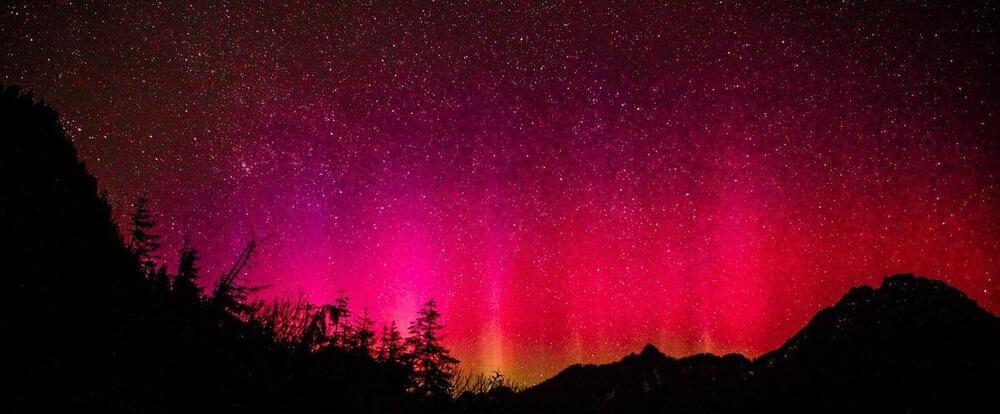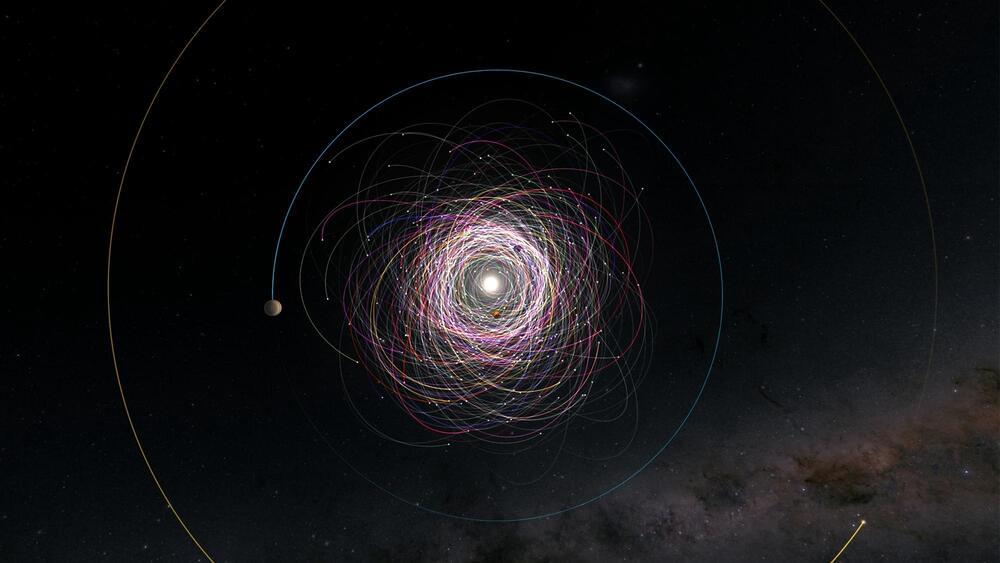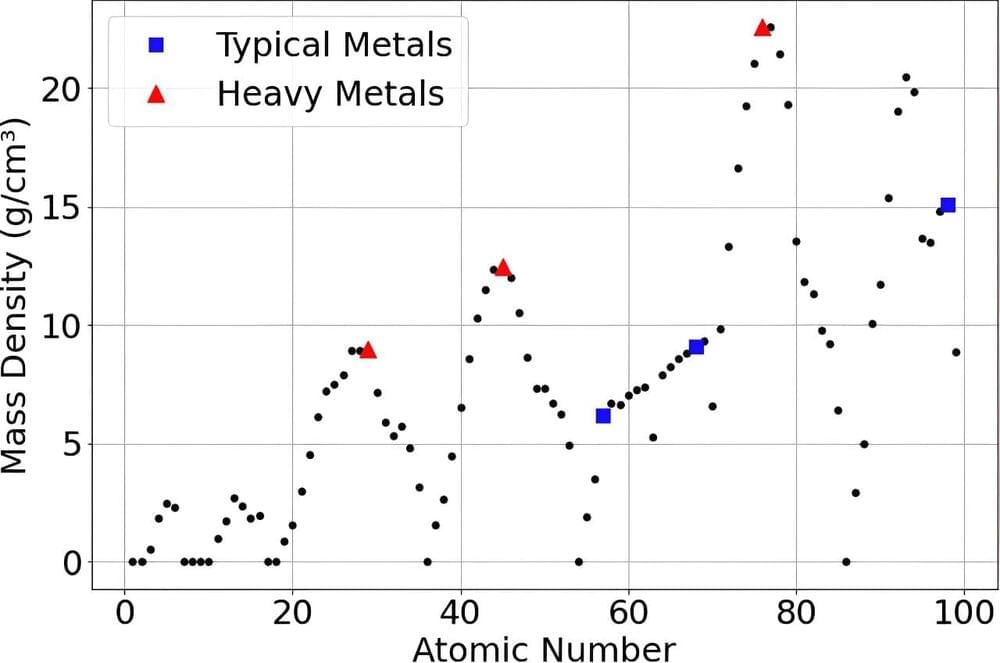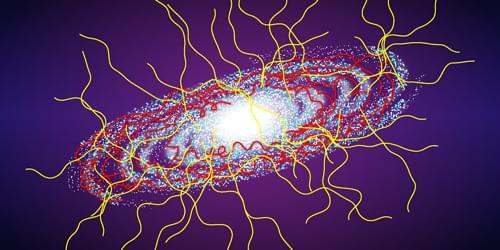Interstellar magnetic fields perturb the trajectories of cosmic rays, making it difficult to identify their sources. A new survey of gamma radiation produced when cosmic rays interact with the interstellar medium should help in this identification.
Scientists know that the diffuse gamma-ray glow that suffuses the Milky Way is mainly produced by the interaction of high-energy cosmic rays with interstellar gas. But questions remain about the properties of these cosmic rays. What, for example, is their energy limit? And how do cosmic rays propagate from their sources? These long-standing mysteries could potentially be solved by observations of the highest-energy diffuse gamma rays. To this end, researchers working on the square kilometer array (KM2A) at the Large High Altitude Air Shower Observatory (LHAASO) experiment in China have reported precise measurements of the energy spectra of diffuse gamma rays over a wide energy range and across a large swath of the Galaxy [1]. Their results will give new insight into the propagation, interaction processes, and origin of the highest-energy cosmic rays in our Galaxy.
Since their discovery in 1912, cosmic rays—mainly comprising high-energy protons—have been observed across an energy range of more than 10 orders of magnitude. But in 1958, scientists found that the cosmic-ray flux decreases rapidly beyond an energy of a few PeV [2]. Researchers have explained this spectral cutoff by hypothesizing that cosmic rays accelerated to up to a few PeV are confined by the Galactic magnetic field for 104–107 years and accumulate in a “cosmic-ray pool” (Fig. 1): these are the cosmic rays whose interactions with interstellar gas are responsible for most of the diffuse gamma rays. Cosmic rays above a few PeV, meanwhile, are thought to escape from our Galaxy, therefore contributing relatively little to the gamma-ray haze.








